[bannerTop]
Welcome to our Hbpix “Virus” removal guide. The following instructions will aid you in removing the unwanted software from your PC.
In the article below we will be describing the potential consequences of Hbpix “Virus”. This is a type of software that has been irritating users around the globe by showing too many perhaps unwanted ads (such as banners and pop-ups) or intrusive downloads. The bothering news is that such software can typically infect all of your browser apps (like Chrome, Firefox and Explorer). However, the good news is that inside this article (right after the paragraphs) you will also find a Removal Guide. The instructions inside it have been especially designed to get rid of this irritating ad-producing product. For more information, proceed with the paragraphs below.
What kind software is Hbpix “Virus” regarded as?
This program falls in the group of the infamous ad-generating programs known as Adware. They have become the most widely spread online irritation-causing software that a user may ever get to experience. All the programs from this group are specialized only in spreading various ads, but not the ordinary page-hosted pop-ups and banners. These ads could really be extremely annoying, as such advertisements may tend to appear whenever you try to use your browser, and their intensity might be shockingly great.
Are these ad-broadcasting programs versions of any popular malware?
Despite the irritation that Hbpix “Virus” and its sibling products might become the reason for, there is really nothing harmful about them. They are just marketing tools, not viruses. Here we are going to outline the basic differences between ad-broadcasting software and malware.
Normally, malware acts in the following way: The most widely spread types of malware – Trojans and Ransomware-based viruses usually have the habit of damaging your system in some way. For instance, Trojans are known to perform a great number of harmful activities: stealing personal information, even draining bank accounts; or even spying on your 24/7 or hacking your social media accounts. Ransomware-type products, on the other hand, once inside your system begin to detect and encrypt your most important data. Then a ransom is demanded for its decryption.
On the other hand, Adware could simply: The programs based on Adware, including Hbpix “Virus”, can only broadcast overwhelming quantities of online ads. The ad forms may range from tabs and banners to pop-ups and differently shaped and coloured boxes. The only slightly suspicious activity any Adware might perform is to base its ads on your recent browsing history. Generally, this means you will only be sent the pop-ups that are relevant to your previous search requests and browsing patterns. However, the ad-showing programs have NO access to any other kind of data, only to your surfing history. Don’t panic immediately! One more rather negative consequence that might come as a result of their installation on your PC is the possible system slowdown that might be visible especially happening to devices with scarce resources (due to the extensive ad generation).
In what way could you end up infected with such an annoying ad-producing program?
What is truly confusing about Hbpix “Virus” and all the other similar programs are the distribution methods developers use to spread such software. Despite being quite harmless and marketing-driven, such software members have been classified as potentially unwanted thanks to the rather suspicious ways they may use to get around. If you want to stay as far away from Adware as possible, avoid doing the following:
# Downloading and installing bundles: They are known as the most common sources of Adware. The essence of this quite successful adware-distributing scheme is the fact that bundles are combos of varying products – apps, games, Adware, browser hijackers, new programs. There is something for everyone inside them. That’s how any innocent user may get more willing to download and install such a combo. It is essential to mention you are NOT dealing an infection if you have just downloaded such a bundle, or if you install it correctly. The contamination may only occur provided that you haven’t performed the installation process carefully. The only proper installation manner requires as many manual steps as possible. In this way you could check what a bundle might consist of and what exactly you need installed on your PC. The installation feature which best fits this requirement is called ADVANCED or CUSTOM.
# Loading shady websites, downloading such torrents or opening such shady emails: Shareware, torrents and spam could also carry Adware-based programs. Simply avoid them to spare yourself some irritation later.
Even if Hbpix “Virus” doesn’t represent an actual threat, is it a legal program?
Of course, all marketing-serving apps and programs are legal. The way this scheme with the generated ads functions is the following: the more pop-ups the infected users see, the more money the developer of the ad-producing program gets. It is believed that an intense exposure to a certain product might result in more willingness to purchase it.
For the purpose of removing Hbpix “Virus”, follow the instructions included in the Removal Guide below.
Hbpix “Virus” File Removal
I – Safe mode and revealing hidden files
II – Uninstallation
[bannerMiddle]
- Use the Winkey+R keyboard combination, write Control Panel in the search field and hit enter.

- Go to Uninstall a program under Programs.

- Seek the unwanted software, select it and then click on Uninstall
If you are unable to spot Hbpix “Virus”, search for any unrecognized programs that you do not remember installing on your PC – the unwanted software might disguise itself by going under a different name.
III – Cleaning all your browsers
- Go to your browser’s icon, right-click on it and select Properties.

- Go to the Shortcut tab and in the Target make sure to delete anything written after “.exe”.

- Now, open your browser and follow the instructions below depending on whether you are using Chrome, Mozilla or IE.
- Chrome users:
- Go to your browser’s main menu located in the top-right corner of the screen and select Settings.
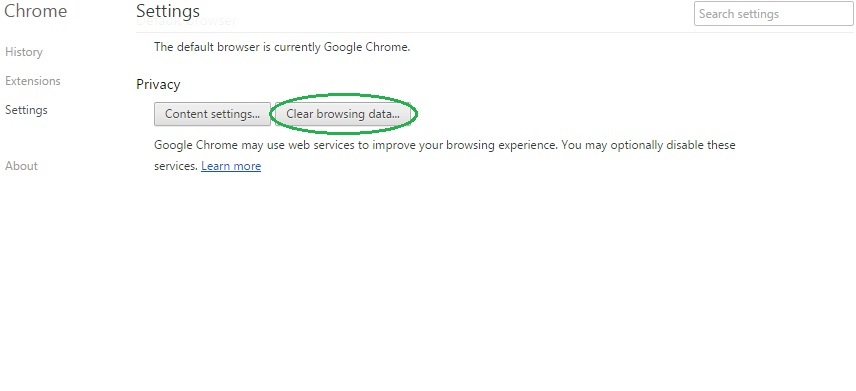
- Scroll down, click on Show Advanced Settings and then select Clear browsing data. Just to be sure, tick everything and clear the data.
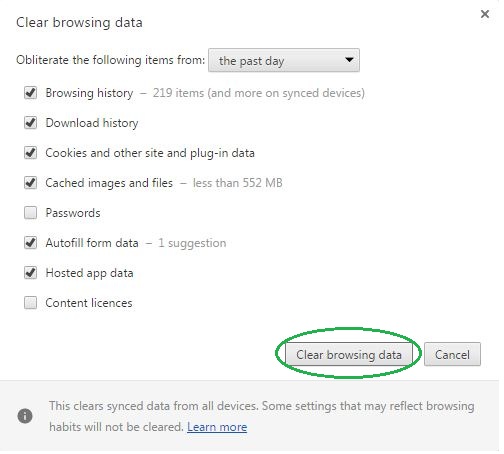
- Now, in the left pane, go to Extensions and look through all extensions that are integrated within your browser. If you notice any suspicious add-on, disable it and then remove it.
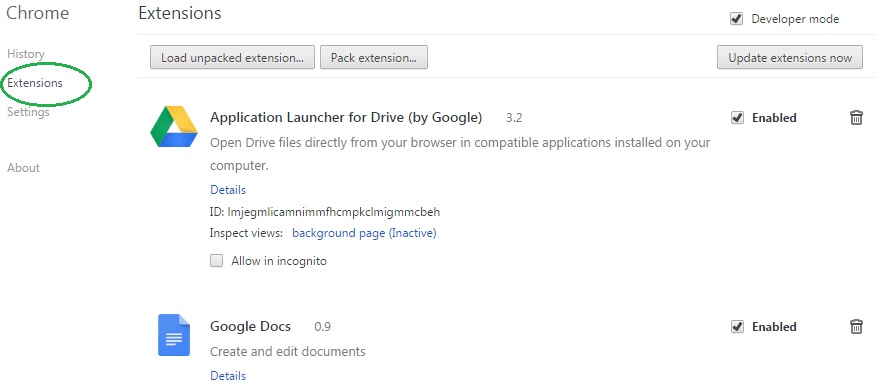
- Firefox users:
- Similarly to Chrome, go to the main menu and select Add-ons and then Extensions.
- Remove any suspicious browser extensions that you may have even if they do not have the name Hbpix “Virus” on them.
- IE users:
- Go to Tools and select Manage add-ons.

- Click on all add-on types from the left pane and check if there is anything suspicious in the right panel. In case you find anything shade, make sure to remove it.
IV – Removing Shady processes
[bannerMiddleSecond]
- Go to your start menu, type Task Manager in the search field and from the results open View running processes with Task Manager.

- Thoroughly look through all processes. The name Hbpix “Virus” might not be there, but if you notice any shady looking process that consumes high amounts of memory it might be ran by the unwanted program.
- If you spot the process ran by Hbpix “Virus”, right-click on it, open its file location and delete everything in there. Then go back to the Task Manager and end the process.

V – DNS check
- In the start menu search box write View Network Connections and open the first result.
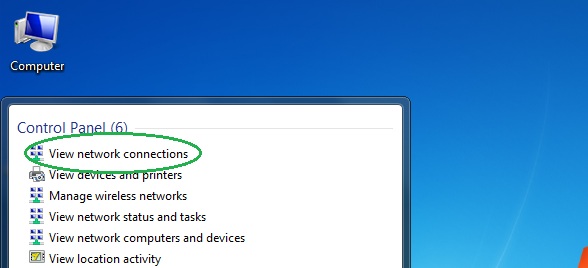
- Right-click on the network connection you are using and go to Properties.

- Select Internet Protocol Version (TCP/IPv4) and click on Properties.

- If Obtain DNS server addresses automatically is not checked, check it.
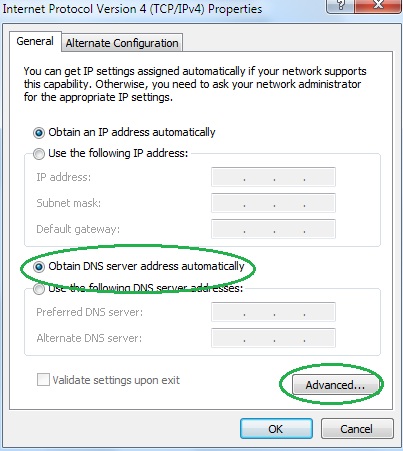
- Go to Advanced and select the DNS If there is anything in the DNS server addresses field, remove it and click OK.

- Click OK on the rest of the opened windows.
